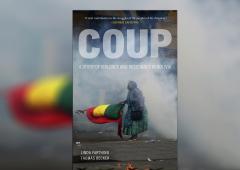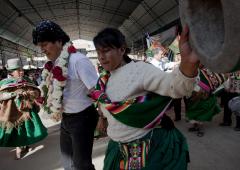Articles by: Bret Gustafson
Farthing and Becker’s book sheds new light on the violence of the interim government as well as the heroic resistance of Bolivian social movements.
How U.S.-backed military interventions in the Caribbean have been tied up with fossil fuel extractivism.
Beyond the defeat of Evo Morales’ referendum, political struggles wage on.
Like their conservative neighbors, left-leaning governments are entangled in Latin America’s renewed dependence on natural-resource extraction. It is not clear whether these regimes can pursue the deepening of social, political, and economic democratization while they are still resource pools for the destructive global assault on nature and the climate.
There are two salient trends in the US reporting about Bolivia: (1) the personalization of Morales as the representative of Bolivia's transformation backed by social movements and (2) the misrepresentation of both the new Bolivian Constitution and the so-called Autonomy Statutes of the business and regionalist elite.
It reflects recurring distortions in mainstream journalistic writing on Bolivia. There are a few outright falsehoods, like the "indigenous militias," but beyond inaccuracies, U.S. reporting on Bolivia is misrepresented by the language and narrative form, shaped more by external perceptions and strategies than by Bolivian reality.



